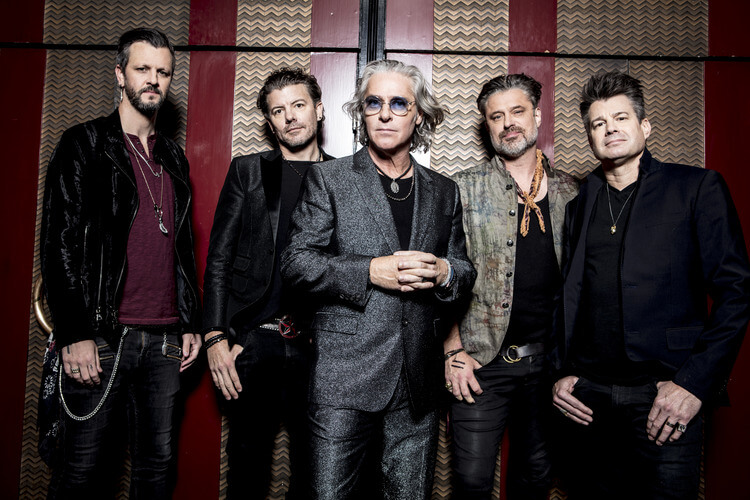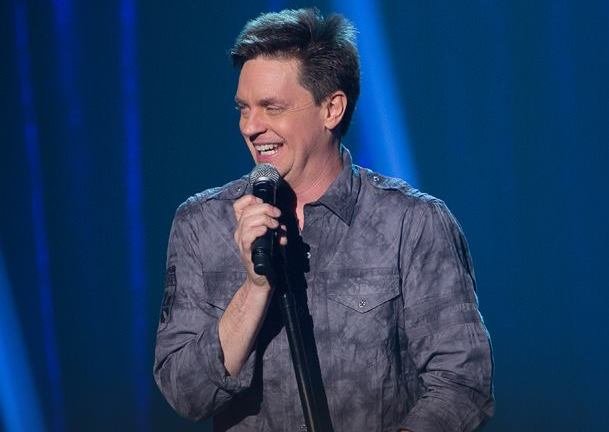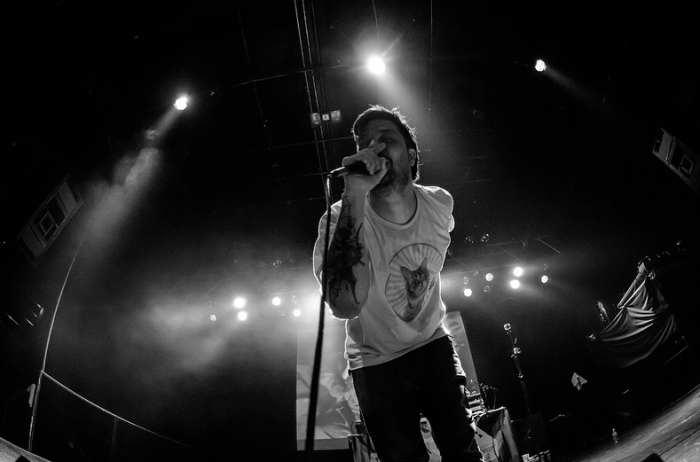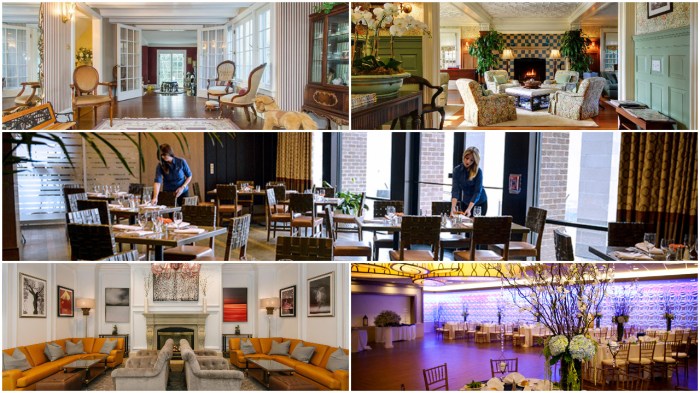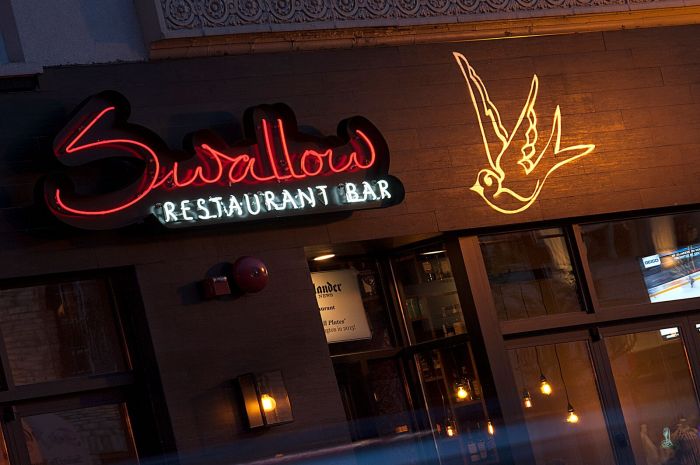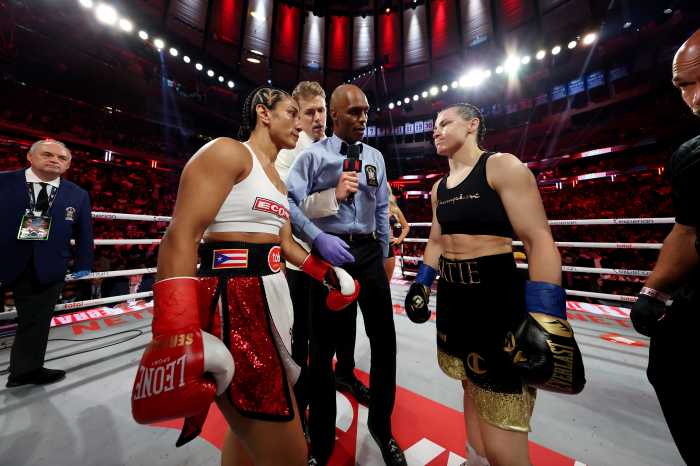Collective Soul has been a major player on the music scene for almost three decades and on May 7 they will bring their electric sound to The Paramount in Huntington.
The members of this Georgia-based band are Ed Roland, lead vocalist, Dean Roland, rhythm guitarist, Will Turpin, bassist, Johnny Rabb, drummer, and Jesse Triplett, lead guitarist.
Collective Soul first gained international recognition when their 1993 debut album, Hints, Allegations and Things Left Unsaid, hit #15 on the Billboard 200 with the single, “Shine,” topping the rock charts.
Their name is an interesting asterisk to their story in that it was taken from a line in Ayn Rand’s book Fountainhead. “I wanted power over a collective soul and I got it. A collective soul.” The book’s message is a fight between individualism versus collectivism in one’s soul. Like that message, Collective Soul battles against conventional standards and opts for an innovative sound that continues to attract a strong following.
Their latest and eleventh album, Vibrating, released Aug. 12, 2022, immediately skyrocketed to become the #1 Alternative album.
Turpin spoke to Long Island Press before the Paramount concert.
Collective Soul Set to Electrify The Paramount on May 7
How do you think the band’s sound has evolved from your debut album to your 2022 release Vibrating? We started out trying to make music that felt good and we trusted our instincts. We try to make the songs as strong as possible and that is the root of everything. For us it’s about how we created timeless music. We still feel that same heart-pumping sensation when we create something really strong.
When you look at the Billboard charts why do you think there’s very little rock music? There will always be a fan base for people who want to hear great songs around a drum set, electric guitar, bass guitar, great vocals. The dominance that rock and roll had for decades is kind of gone. In today’s culture the kids are listening to a lot of hip-hop and rap, but our streams from the classic world are going up.
Kids want to hear what this thing was that captured everybody’s imaginations for decades and there’s a bunch of new young bands doing it right now. I’m working with a band from California called Odd Army and we’re producing a lot in my studio. These guys are a great rock band. If you ask them, they’d probably say their favorite music is from the ‘90s and they’re 25 years old. So, it’s still there. Is it the large percentage of popularity that it was? No, but I don’t know why.
You said, “The importance of who you surround yourself with when you’re artistically creating can’t be overestimated.” Who do you like to surround yourself with when you create music? I love my bandmates. Rabb has been with us now for over a decade and we’ve grown musically in that time. I love to create from the rhythm side of things with Johnny. I usually choose to work with people for their artistry.
What is the band’s writing process? Mainly Ed comes in with a good idea, then we turn it into a Collective Soul song. Some songs come out of jam sessions and spontaneous moments, but Ed’s definitely going to take it and see what springs from his brain. If a strong melody and good reason to sing a song comes out then we know we’re going to follow that road and see what happens.
Collective Soul has been around for almost 30 years now. What do you attribute to the band’s longevity? We grew up in my dad’s studio so we had this recording acumen even at a young age. We knew we were creating songs and we had to support the songs. It’s not about what I could play on bass or how many notes the drummer could play on a fill. And now the songs that we created in that era are sticking around.
The chemistry was tight. We were more than just some dudes that decided to pick up drums, bass guitar and a singer. It was 10 years of overnight success with Ed, a strong songwriter, as our leader. The song was always bigger than the individuals.
What was it like as a kid to hang out at your dad’s music studio Real 2 Reel? It was a small professional studio with so many artists passing through. I still have the studio. My dad gave me the gift of how to create songs and acumen in the studio. Dad called me on a Saturday afternoon when a drummer didn’t show up for a paid session gig.
Back in the ‘80s you had to hire a band to get your demo done. He told the singer-songwriter who needed a band, “Look, this is my son, but I could call the session off because the drummer didn’t show up.” About the second take through on one song, the singer-songwriter gave Dad the thumbs up. That was my first professional session at 14 years old. My dad knew what real music was. He introduced me to Paul McCartney, the Eagles, and Paul Simon records.
Which instrument do you enjoy the most? I like them all. They’re devices to make music with. If I’m playing rock and roll, I love playing bass, but I don’t have a favorite instrument. Piano was my first instrument, so even when I’m playing bass, in my head I’m seeing a whole keyboard. Every note is on the keyboard, the guitar has a third of those notes.
Do you feel that growing up in Georgia had an effect on the band’s sound? Yeah! Your average person’s not going to hear Collective Soul and say, “That’s a Southern band.” We were influenced as much by U2, The Cars, and Elton John as we were by Lynyrd Skynyrd or the Allman Brothers. We were more into U2 and INXS, and we’re big fans of R.E.M., who were from Georgia, bands making modern alternative music in the ‘80s.
We were influenced by Blackfoot and Mother’s Finest, especially with the three guitars and multiple solos with double guitars. That’s the part that you can physically see. That’s a little bit of a Southern influence in Collective Soul.
What was it like opening for Aerosmith shortly after your debut album hit it big? Everything was such a scream back then and we were so busy. In that era, we were hanging on trying to figure things out. We were young and felt like we were just shot out of a cannon. It was fun and awesome! I was 24 and touring around the world seeing every amphitheater watching Aerosmith jam every night.
All we could do was get on stage and be proud of what we did live. We always thought about the next recordings. There were five records in those first seven years and that’s where our heads were at. We wanted people to hear what we had.
How did it feel to have a national treasure like Dolly Parton cover “Shine” in her 2001 Little Sparrow album? It’s just a straight honor! She is a national treasure and artistically, I don’t think a lot of people understand how good she is, where she came from and how strong that career is. It’s an absolute honor!
What stands out to you about working with Elton John on the Blender album? He used to spend time in Atlanta and we were friends because he was a fan. It took us maybe three years after meeting him before we got him in the studio. It’s one of those high points of your career that you created an awesome song with Elton John.
What was it like to play at Woodstock 1994? That Friday night, the rain hadn’t come yet. There were a bunch of bands who had just started and almost all of those bands are still around, Blues Traveler, Live, Sheryl Crow. There was humanity as far as the eye could see. The vibe was excellent. We met some friends that we still see. We’re doing dates with Blues Traveler and Live this summer. It’s such a reunion when we see those guys.
What’s next for Collective Soul after this current tour? In 2024 you’re going to hear a lot from us. We’ve got a new record coming out next year that we did in Elvis’ old Palm Springs house. It’s in a state of disrepair, but about to be totally renovated. You’ll see pictures and videos.
We dressed up that living room awesome! The same living room Elvis recorded some tracks on the Raised on Rock album. Everything is exactly the same. A bit of a time capsule, but also there’s just some DNA on the walls, you can feel it. Sadly, we were there in January when Lisa Marie passed away. The engineer booth we set up was in her childhood bedroom.
What’s next for your solo career? I’ll do productions with my Real People Music production company. I’m working with some great artists from all over the country and to borrow one of Paul McCartney’s quotes, Nothing pleases me more than to go into a room and come out with a piece of music.




